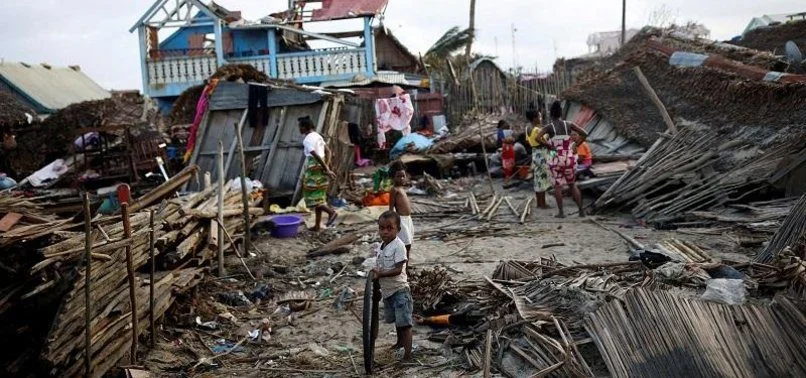Tropical Cyclone Alvaro has wreaked havoc across Madagascar, leading to the tragic loss of at least 12 lives and causing significant destruction in various regions of the island nation. This weather event, which struck Madagascar with ferocious winds and heavy rains, has exacerbated the ongoing challenges faced by a country already grappling with issues such as poverty, food insecurity, and inadequate infrastructure.
Impact of the Cyclone
Cyclone Alvaro made landfall in Madagascar, bringing with it powerful winds that uprooted trees, destroyed homes, and disrupted essential services. Many communities were left isolated as flooding cut off access to roads and transportation networks, complicating rescue and relief efforts. The aftermath of the cyclone revealed widespread damage, with entire neighborhoods submerged under water and crucial infrastructure severely impacted.
The government of Madagascar swiftly mobilized emergency response teams to assess the damage and provide assistance to affected communities. However, the scale of destruction posed challenges for first responders, who faced difficulties reaching remote areas. Many families were left without shelter, food, or clean water, highlighting the urgent need for humanitarian aid.
Loss of Life and Humanitarian Response
The loss of life due to Cyclone Alvaro has raised alarm among local authorities and humanitarian organizations. The confirmed deaths primarily resulted from collapsed structures and drowning incidents during the intense flooding that followed the cyclone. In addition to the fatalities, many people sustained injuries, with some requiring medical attention for serious conditions.
In response to the tragedy, Madagascar’s government declared a state of emergency in the worst-hit regions. Relief organizations, including the Red Cross and local NGOs, began mobilizing resources to provide food, water, and medical care to those affected. Emergency shelters were set up to accommodate displaced individuals, offering them refuge from the ongoing challenges posed by the cyclone’s aftermath.
Ongoing Challenges
Madagascar is particularly vulnerable to extreme weather events due to its geographical location in the Indian Ocean, which exposes it to cyclones and other climatic phenomena. This vulnerability is compounded by socioeconomic challenges, including high levels of poverty and limited infrastructure development. Many communities rely on agriculture for their livelihoods, and the destruction of crops and farmland caused by Cyclone Alvaro threatens food security in the coming months.
The government has faced criticism for its preparedness and response to natural disasters, as many citizens argue that better infrastructure and disaster management systems could have mitigated the cyclone’s impact. Calls for improved disaster preparedness strategies have become increasingly urgent, as climate change continues to intensify the frequency and severity of weather events in the region.
Looking Ahead
As the nation begins the long road to recovery, the focus remains on rebuilding and providing support to those affected by Cyclone Alvaro. International aid and cooperation will play a crucial role in facilitating recovery efforts, but it is equally important for Madagascar to invest in resilient infrastructure and comprehensive disaster preparedness plans to protect its citizens from future natural disasters.
The impact of Cyclone Alvaro serves as a stark reminder of the challenges facing Madagascar and the need for concerted efforts to address both immediate humanitarian needs and long-term resilience against the effects of climate change. As communities work to rebuild their lives, the hope is that lessons learned from this disaster will lead to better preparedness and a more resilient Madagascar in the future.























